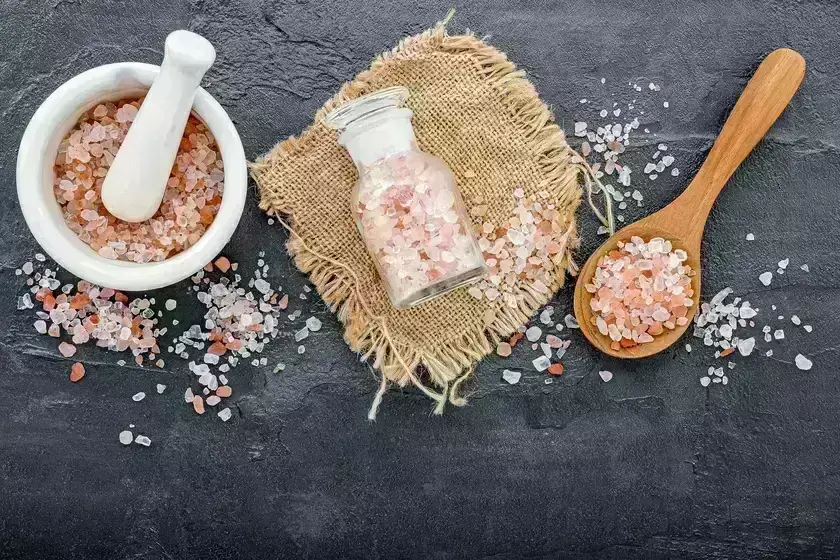- Home
- Medical news & Guidelines
- Anesthesiology
- Cardiology and CTVS
- Critical Care
- Dentistry
- Dermatology
- Diabetes and Endocrinology
- ENT
- Gastroenterology
- Medicine
- Nephrology
- Neurology
- Obstretics-Gynaecology
- Oncology
- Ophthalmology
- Orthopaedics
- Pediatrics-Neonatology
- Psychiatry
- Pulmonology
- Radiology
- Surgery
- Urology
- Laboratory Medicine
- Diet
- Nursing
- Paramedical
- Physiotherapy
- Health news
- Fact Check
- Bone Health Fact Check
- Brain Health Fact Check
- Cancer Related Fact Check
- Child Care Fact Check
- Dental and oral health fact check
- Diabetes and metabolic health fact check
- Diet and Nutrition Fact Check
- Eye and ENT Care Fact Check
- Fitness fact check
- Gut health fact check
- Heart health fact check
- Kidney health fact check
- Medical education fact check
- Men's health fact check
- Respiratory fact check
- Skin and hair care fact check
- Vaccine and Immunization fact check
- Women's health fact check
- AYUSH
- State News
- Andaman and Nicobar Islands
- Andhra Pradesh
- Arunachal Pradesh
- Assam
- Bihar
- Chandigarh
- Chattisgarh
- Dadra and Nagar Haveli
- Daman and Diu
- Delhi
- Goa
- Gujarat
- Haryana
- Himachal Pradesh
- Jammu & Kashmir
- Jharkhand
- Karnataka
- Kerala
- Ladakh
- Lakshadweep
- Madhya Pradesh
- Maharashtra
- Manipur
- Meghalaya
- Mizoram
- Nagaland
- Odisha
- Puducherry
- Punjab
- Rajasthan
- Sikkim
- Tamil Nadu
- Telangana
- Tripura
- Uttar Pradesh
- Uttrakhand
- West Bengal
- Medical Education
- Industry
Sodium intake above recommended amount raises mortality risks in vulnerable populations: JAMA

Sodium intake above the recommended amount raises mortality risks in vulnerable populations suggests a new study published in the JAMA.
A study was done to investigate the associations of excessive dietary sodium with all-cause and cause-specific mortality among predominantly low-income Black and White Americans. This cohort study included participants aged 40 to 79 years from the Southern Community Cohort Study who were recruited at Community Health Centers in 12 southeastern states from 2002 to 2009. Analyses were conducted between March 2022 and June 2023. Dietary sodium intake was assessed using a validated food frequency questionnaire at baseline. Multivariable-adjusted Cox regression was used to estimate hazard ratios (HRs) and 95% CIs for mortality outcomes (all-cause, cardiovascular disease [CVD], coronary heart disease [CHD], stroke, heart failure, cancer, and other) associated with sodium intake. Nonlinear associations and population-attributable risk (PAR) of the mortality burden associated with excess sodium were further assessed. RESULTS: Among the 64 329 participants, 46 185 (71.8%) were Black, 18 144 (28.2%) were White, and 39 155 (60.9%) were female.
The mean (SD) age at study enrollment was 51.3 (8.6) years for Black participants and 53.3 (9.3) years for White counterparts. Mean (SD) dietary sodium intake was 4512 (2632) mg/d in Black individuals and 4041 (2227) mg/d in White individuals; 37 482 Black individuals (81.2%) and 14 431 White individuals (79.5%) exceeded the current dietary recommendations of 2300 mg/d. During a median (IQR) follow-up of 13.8 (11.3-15.8) years, 17 811 deaths were documented, including 5701 from CVD. After adjustment for potential confounders, in Black individuals, HRs per 1000-mg increase in daily sodium intake were 1.07 (95% CI, 1.03-1.10) and 1.08 (95% CI, 1.02-1.14) for deaths from total CVD and CHD, respectively; while in White individuals, the corresponding HRs were 1.08 (95% CI, 1.02-1.14) and 1.13 (95% CI, 1.03-1.23). No significant associations were found for cancer mortality. PAR estimates suggest that sodium intake above the recommended threshold may account for 10% of total CVD, 13% of CHD, and 30% of heart failure deaths in this low-income southern population. In this cohort study of 64 329 low-income Americans, nearly 80% of study participants consumed sodium exceeding the current recommended daily amount, which was associated with 10% to 30% of CVD mortality. Public health programs targeted to reduce sodium intake among this underserved population may be beneficial.
Reference:
Yoon H, Cai Q, Yang JJ, et al. Sodium Intake and Cause-Specific Mortality Among Predominantly Low-Income Black and White US Residents. JAMA Netw Open. 2024;7(3):e243802. doi:10.1001/jamanetworkopen.2024.3802
Dr. Shravani Dali has completed her BDS from Pravara institute of medical sciences, loni. Following which she extensively worked in the healthcare sector for 2+ years. She has been actively involved in writing blogs in field of health and wellness. Currently she is pursuing her Masters of public health-health administration from Tata institute of social sciences. She can be contacted at editorial@medicaldialogues.in.
Dr Kamal Kant Kohli-MBBS, DTCD- a chest specialist with more than 30 years of practice and a flair for writing clinical articles, Dr Kamal Kant Kohli joined Medical Dialogues as a Chief Editor of Medical News. Besides writing articles, as an editor, he proofreads and verifies all the medical content published on Medical Dialogues including those coming from journals, studies,medical conferences,guidelines etc. Email: drkohli@medicaldialogues.in. Contact no. 011-43720751


